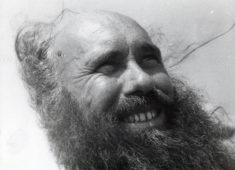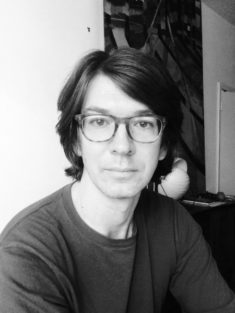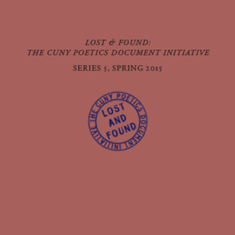Editor: Kai Krienke
Part I: 52 pages, softcover, saddle-stitch binding
Part II: 54 pages, softcover, saddle-stitch binding
The work and life of Algerian revolutionary and poet Jean Sénac has yet to be recognized in the Anglophone world. This chapbook presents three distinct periods in Sénac’s life, tracing three representative moments in Algerian history through a collection of archival documents. The first part of the book is a translated selection from Sénac’s 1957 manifesto The Sun Under the Weapons [Le soleil sous les armes], written in Paris at the height of the war. Addressed to both Algerian and French audiences, as well as his former friend Albert Camus (from whom he was estranged by political differences over the war), The Sun Under the Weapons is a poetic response to the violence tearing both societies apart. The second document is a series of unpublished letters Sénac exchanged with Algerian novelist Mohammed Dib from before the war (1951-1953), centered on the launch of a literary journal. Under the shadow of the encroaching war of liberation that would erupt in 1954, Sénac gathered younger and more established writers in a visionary attempt to forge a new and inclusive Algerian culture. The third document is comprised of notes Sénac took at a meeting of New Algerian poets in 1972, ten years after Algeria’s independence. Here the poet as activist focuses all his powers on a common national project at a time when revolutionary ideas had reached an impasse. Though clearly situated in Algeria, Sénac was a citizen of the world and took his poetic models from Whitman, Rimbaud, Mayakovsky, Lorca, the Beats, and the Black Arts movement. These unique documents represent distinct genres and modes of intervention, from personal correspondence, political address, to the public mediation of poets, bringing attention to a major but largely unknown 20th century cultural figure.
Author Biography:
Jean Sénac was born in 1926 in Béni Saf, Algeria, a small mining town near Oran, the illegitimate son of a working-class Spanish mother. Aside from his many poetry collections and critical essays, he directed several radio programs on poetry at Radio Alger, spearheaded three literary reviews ( M, Soleil and Terrasses), and founded Galerie 54 dedicated to Algerian art. Sénac strove throughout his life to create bridges between cultures that were being torn apart by increasing hatred and violence and the legacies of colonialism. Openly homosexual after his return to Algeria in 1962 and dedicated to promoting New Algerian poetry, Sénac was seen as an increasing liability to an Algerian leadership that had abandoned their revolutionary ideals. He was assassinated the night of August 29, 1973.
Selected Archives:
- Jean Sénac Archives, National Library of Algiers, Algeria
- Jean Sénac Archives, Mediterranean Literary Archives of the Alcazar Library of Marseille, France
- Personal Archives (Hamid Nacer-Khodja, Denis Martinez)


